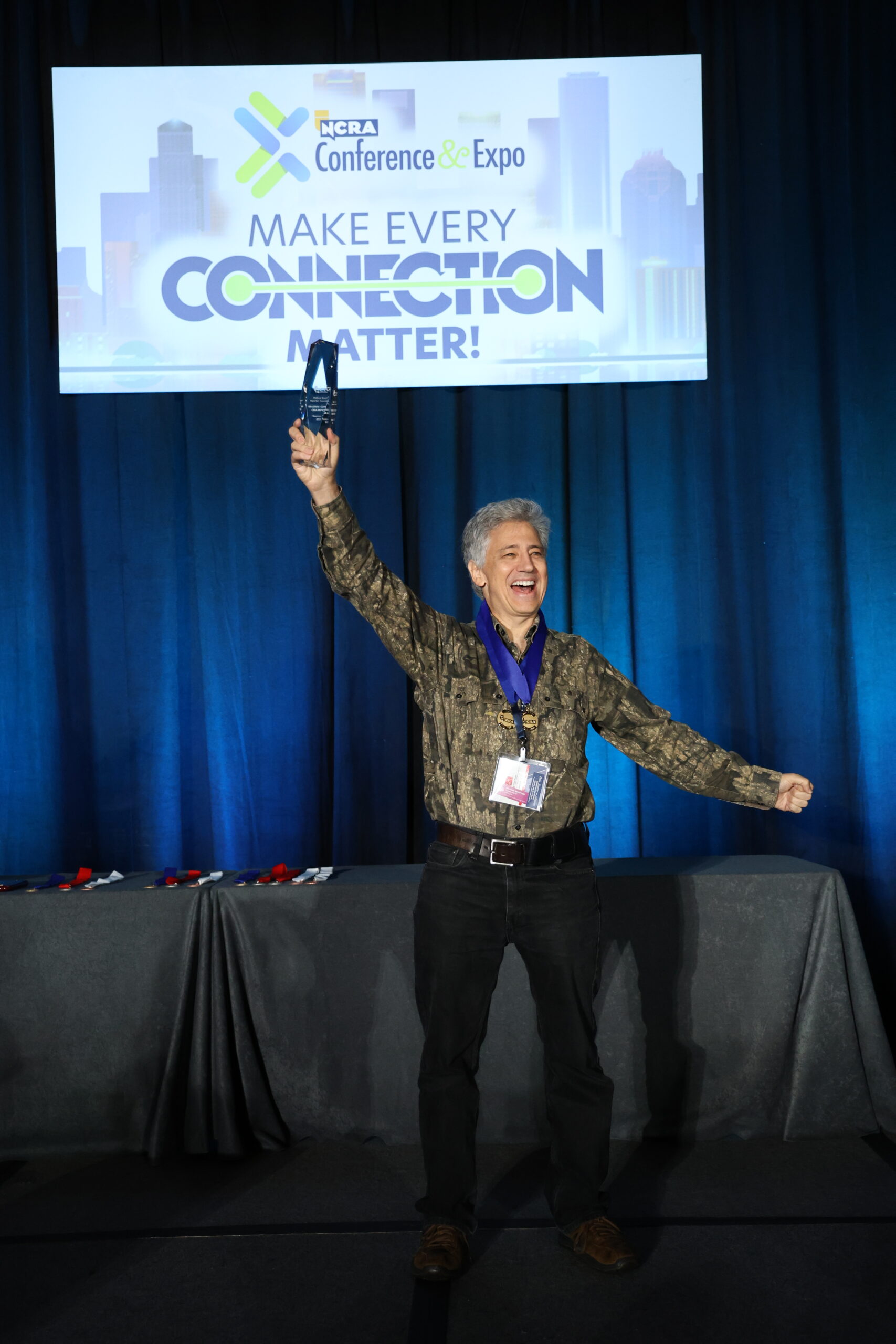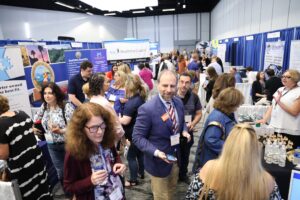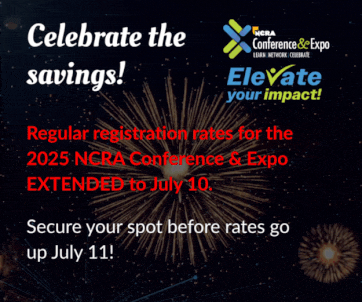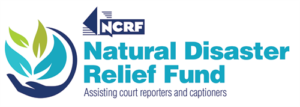Mark Kislingbury, FAPR, RDR, CRR, a freelance reporter based in Houston, Texas, earned the title of 2023 NCRA Realtime Contest champion — making this the sixth time he has held the crown. In addition, Kislingbury has taken top honors in the NCRA Speed Contest. Over the years, he has advocated writing short, even publishing My System: The Road to Realtime Excellence and Magnum Steno Beginning Theory (currently in its fourth edition). He recently agreed to being interviewed by the JCR.
JCR | Can you tell us a little about your career?
MK | Most of my career has been as a freelance court reporter although I did spend 22 years writing a three-hour radio program in realtime five days per week. These days I am teaching court reporting students the Magnum Steno theory as well as picking up realtime jobs as they come along. I really enjoy teaching, as well as having the freedom to pick and choose the jobs I prefer to take. I have been truly blessed.
JCR | How long have you been working in the profession?
MK | This year I hit the milestone of 40 years. I can hardly believe it. And I love the profession more and more the longer [I am in it]!
JCR | This was your sixth Realtime Contest win. Was there anything special about this one?
MK | I feel grateful that I was able to pass that super-hard Literary as well as win the Testimony side of the contest. It’s fairly rare to place first in both sections, so that is indeed a great feeling.
JCR | Do you practice for the contests? If so, what is that like?
MK | I do practice for the contests. The Speed Contest is an entirely different beast than the Realtime Contest; it emphasizes outright speed where accuracy can suffer a bit, whereas the Realtime Contest requires the highest accuracy one can possibly deliver, albeit at lower speeds. I generally practiced 30 to 60 minutes a day for the contests for at least several weeks, sometimes months before. I would practice almost every day of the year regardless, but as the contests got closer, I would try to hone my goals to be more contest specific.
JCR | Do you have any advice you would give to other Contestants?
MK | Practice as much as you can and make it fun. If it’s no longer fun, it’s probably time to stop. In my own case, one of my main reasons for competing was that it would provide a platform of credibility for when I share with students and reporters how important it is to write short.
JCR | Do you plan to continue to compete at the national level?
MK | I have decided to stop competing in the NCRA Speed Contest and Realtime Contest because it is a lot of work and pressure over 28 years of competing, and I have achieved most of my personal goals. However, I am not saying I might not change my mind sometime in the future and give it another go! But my intention at this time is to give it a rest. (It already feels good!) Also, if some new kind of test or contest were to come about in the future, regardless of the venue, I’m the kind that might want to jump right back in! I never have participated at Intersteno in Europe; that might be something to try one day. We’ll see.
JCR | Do you have a favorite story from your years of being a contestant?
MK | Honestly, I think my favorite times were just before we would begin writing the first take in the Speed Contest, the late (great, greatly beloved and missed) Jim Bouley — invariably! — would crack some joke that would have us all laughing and would relieve the tension. I’m sure that helped us all write better! It might be good for the JCR Editor to put here how many NCRA Speed Contests Jim Bouley competed in over the years! I am sure he has the record. [Unfortunately, the database is incomplete in this regard, as we believe that Bouley started competing in the 1970s, prior to our database being put on line.]
JCR | You served as chair of the Realtime Contest Committee several years ago. What was that like?
MK | I did chair the Realtime Contest for two years. It was important to provide the clearest dictation possible as well as material that was neither too easy nor too hard. That is a difficult goal to achieve, and I believe that most years the Contest chairs have achieved that goal.
JCR | What advice would you have for a person who has never been in a Contest before? How can they get started?
MK | That’s a great question. I would suggest that if you are thinking about entering, by all means, do! My impression is that most, if not all, who compete for the first time find that it is a rewarding experience and that the other contestants are most friendly and encouraging. All the contestants seem to revel in the success of all the other contestants, and we all understand what it feels like to perform below expectation, and usually we vow to prepare better next year!
JCR | Anything else you would like to share?
MK | I would like to thank NCRA and its staff and all chairs, assistants, and graders over the entire history of NCRA, even back to when it was the NSRA (National Shorthand Reporters Association), for keeping the over one hundred years of continued tradition of friendly, high-level competition between court reporters. I believe friendly competition makes us all better as we learn more about ourselves and others while striving to be the best we can be.







